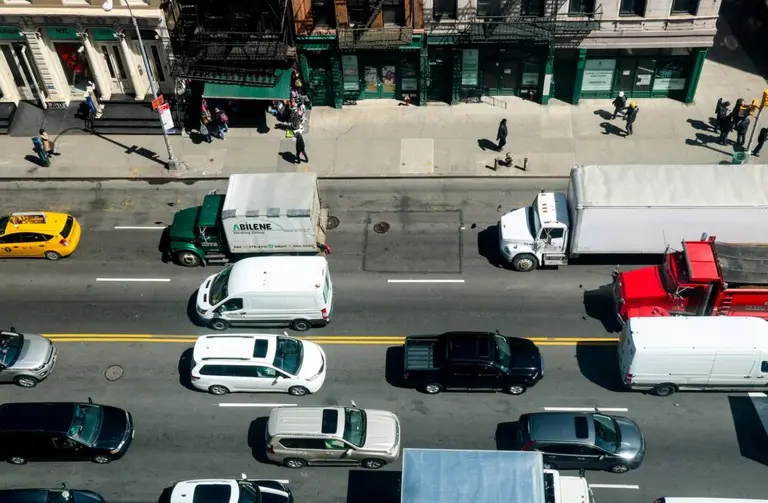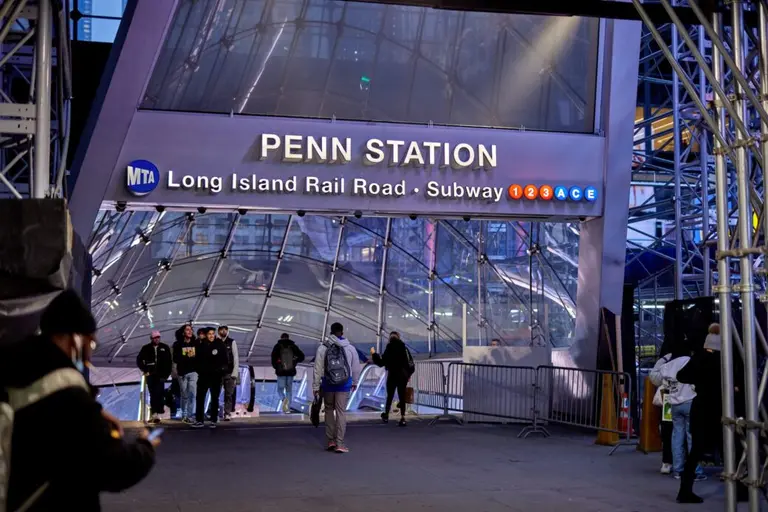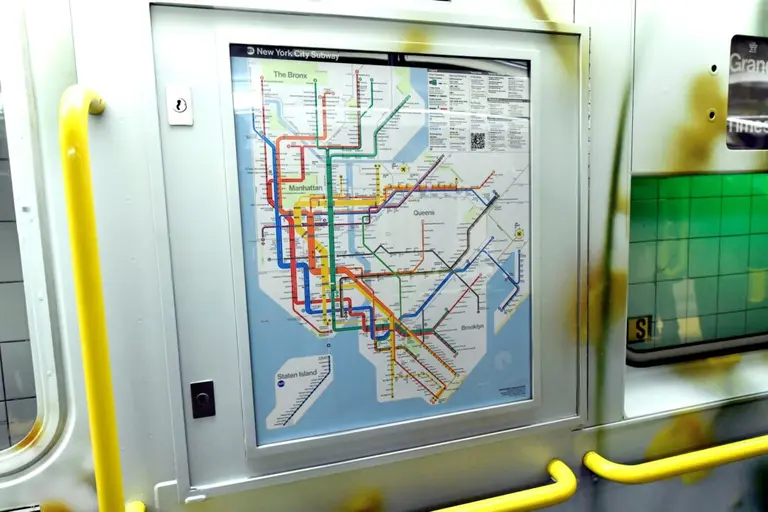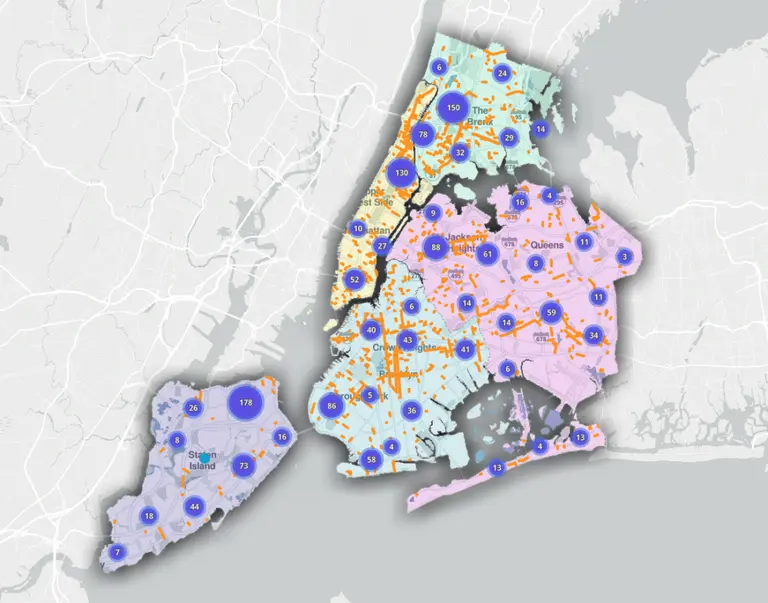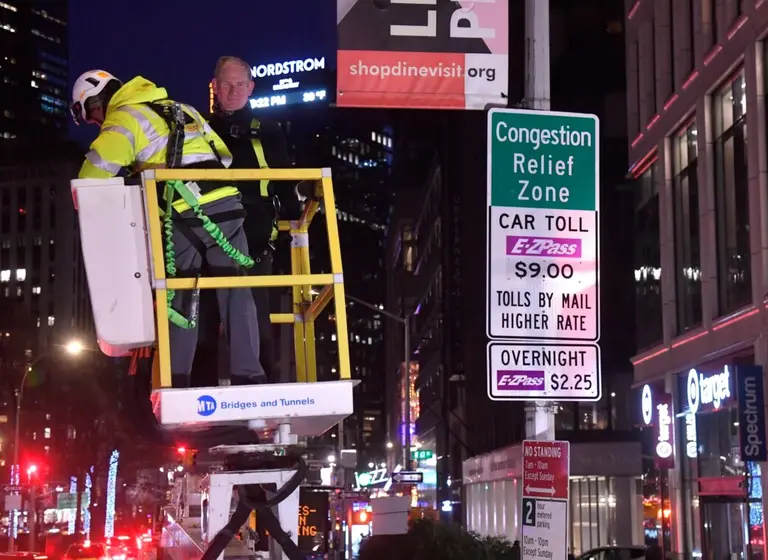$20M Allocated to New Technology That Will Let NYC Vehicles ‘Talk’ to Each Other

Traffic jam photo via joiseyshowaa/flickr
Yesterday, the U.S. Department of Transportation announced that $42 million will be allocated to new technology in New York City, Tampa, and the state of Wyoming that allows vehicles to “talk” to one another and their surroundings “in order to reduce congestion, prevent accidents, and cut emissions,” according to Daily Intelligencer. The city is receiving $20 million of the funds, with which it will create “connected vehicles” that can hopefully reduce traffic accidents by up to 80 percent. By gaining access to real-time traffic data, both drivers and pedestrians will be alerted (or do the alerting) of potential hazards.
New York will use its funds to install V2V (vehicle-to-vehicle) capabilities in 10,000 city-owned cars, buses, taxis, and limos that frequent midtown. V2I (vehicle-to-infrastructure) technology will be concentrated in more dangerous and congested areas. The city is planning the V2I upgrade for all traffic signals on First, Second, Fifth, and Sixth Avenues between 14th and 66th Streets, as well as those on Flatbush Avenue between Grand Army Plaza and Tillary Street in Brooklyn. They’ll also install roadside units on the FDR between 50th and 90th Streets.
As DI notes, “Last year there were 248 traffic fatalities in New York, including 132 pedestrians, 20 bicyclists, 37 motorcyclists, and 59 people in motor vehicles.” The new technology is expected to help curtail those figures, part of Mayor de Blasio’s Vision Zero plan. Using the V2V and V2I systems, which are transferred over dedicated wireless channels, drivers will be able to convey direction and speed. This will help with things such as stoplight timing, and it will also send possible collision alerts to nearby pedestrians or bicyclists via an app. Drivers, too, would get alerts, telling them if they’re speeding or of upcoming congestion.
The Connected Vehicle project will be developed over four years, but designs for the smart devices are expected to start being developed in the next few weeks.
[Via Daily Intelligencer]
RELATED:
